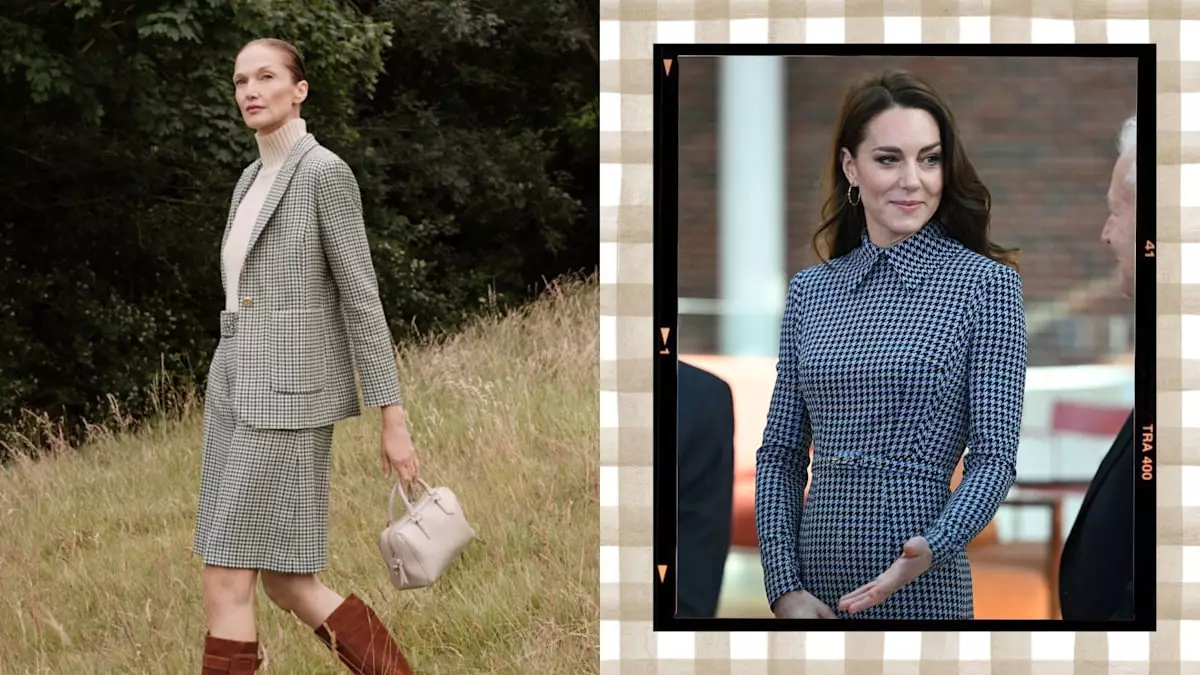In recent years, the fashion industry has witnessed a transformative shift towards sustainability, with rental services emerging as a prominent player. L.K.Bennett, a brand beloved by the Princess of Wales, has taken a bold step by offering a subscription-based clothing service known as “LK Borrowed.” Launched in 2021, this innovation allows customers to access high-quality, fashionable pieces without the environmental burden associated with fast fashion. As awareness of the fashion industry’s ecological impact grows, rental fashion stands at the forefront of promoting a more sustainable wardrobe.
The fashion industry is notorious for its significant carbon footprint, contributing to nearly 10% of global carbon emissions. With landfills overflowing with discarded clothing, the need for a shift in consumer behavior has never been more pressing. Fast fashion encourages a cycle of overconsumption and waste, leading many to reconsider their purchasing habits. Rental fashion not only offers a solution to this problem but also encourages a shift in perspective: clothing as a service rather than a permanent possession.
LK Borrowed operates on a simple yet effective subscription model. For a monthly fee of £79, subscribers can access two pieces at a time, rotating through an impressive eight unique items each month. This approach provides a fresh wardrobe experience, continually refreshing one’s style without the need for excessive purchasing. Customers also benefit from the option to buy rented items at a significantly reduced price, up to 50% off retail. This financial incentive, combined with sustainability factors, makes the service appealing to those who wish to maintain a stylish appearance while being mindful of their environmental impact.
Many individuals, myself included, have begun to embrace sustainable fashion choices, often out of necessity rather than mere preference. Initially, my shift involved a commitment to purchasing only second-hand or vintage pieces, coupled with a few key items from trusted high street brands. Reflecting on my previous spending habits, I would frequently exceed £100 per month on clothing alone. However, since adopting a more sustainable wardrobe approach, I have noticed a significant decrease in expenditure. Frequently, pre-loved items come at a fraction of the cost of new clothing, enabling a more frugal yet stylish lifestyle.
Eschewing fast fashion does not mean sacrificing style or quality; it merely redefines one’s relationship with clothing. Renting clothes can be seen as a wise financial decision, especially when juxtaposed with traditional spending habits. At £948 annually, a rental wardrobe through LK Borrowed becomes more than just a luxury—it is a capital-efficient alternative to holding an extensive personal wardrobe. When one considers the comparative costs of other recurring subscriptions, such as gym memberships or mobile phone plans, investing in a diverse rotation of fashionable clothing becomes appealing and sensible.
As the fashion landscape continues to evolve, it is crucial for brands and consumers alike to embrace more sustainable practices. Rental services like LK Borrowed present a viable alternative to the traditional fashion consumption model, aligning style with ecological responsibility. The success of such services hinges on a collective shift in mindset towards valuing quality, sustainability, and innovation in the way we approach our wardrobes. By reimagining clothing as a service rather than an ownership experience, we may pave the way for a more sustainable future in fashion—one where the impact of our choices is thoughtfully considered, and each garment has the potential to foster a cycle of use rather than waste.

